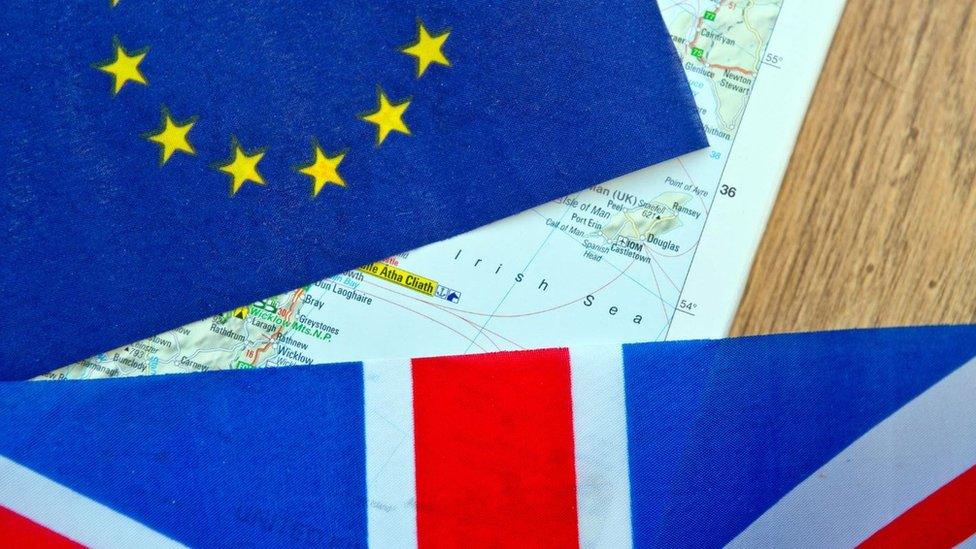Brexit: Minister and officials disagree over NI port controls
- Published
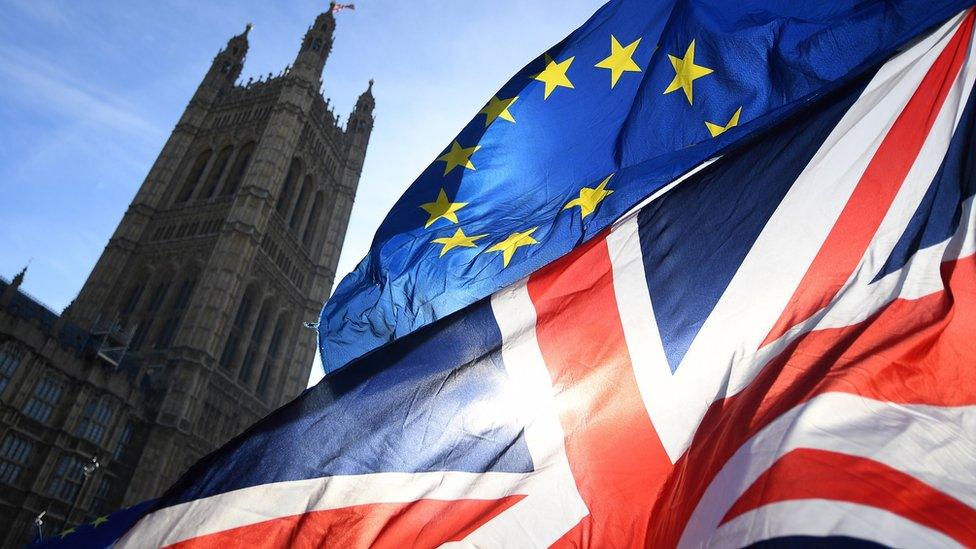
The government says the Internal Market Bill is designed to be a safety net in case the Brexit negotiations fail
NI Environment Minister Edwin Poots and Stormont officials are in disagreement over work on entry controls at local ports, the BBC understands.
The entry controls are required to implement the checks envisaged as part of the EU withdrawal agreement.
In the NI Assembly on Tuesday, the DUP minister was asked if he intended to temporarily stop work on the controls.
"We will have to wait to see what happens," the minister said.
In July, the UK confirmed it intended to put border control posts at Northern Ireland's ports.
The government described the move as "a limited expansion of facilities at some existing entry points, where certain controls for animal and plant health already take place".
Speaking in the assembly, South Down Sinn Féin assembly member Sinead Ennis asked Mr Poots whether he was signalling his intention to put a "temporary stop" to work at these point of entry controls.
Ms Ennis said such a policy would be detrimental and in conflict with the executive's position regarding the Brexit protocol.
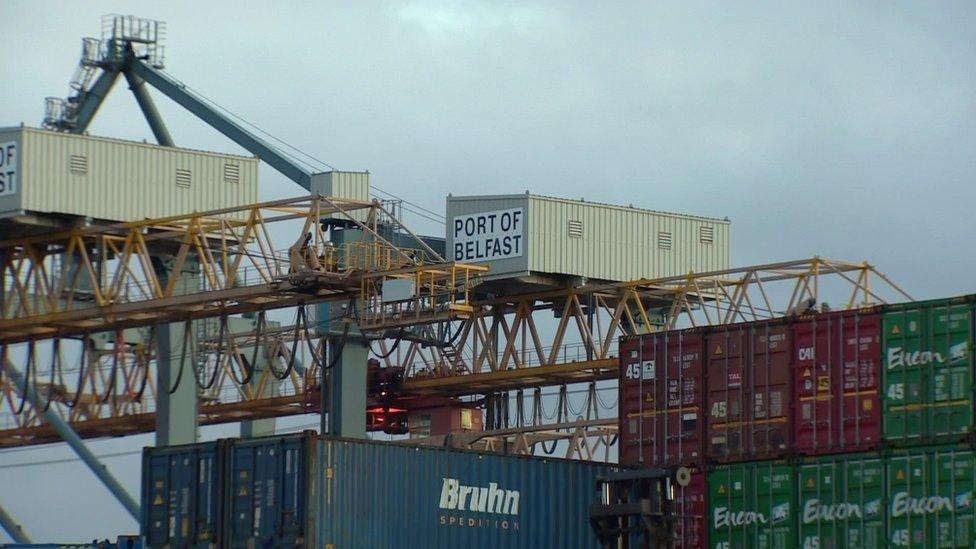
The entry control facilities at NI ports would be used to check animals and food arriving in the EU single market
Mr Poots said he did not want to create any barriers around Northern Ireland.
He said he favoured giving people bringing goods in to Northern Ireland as much access as possible.
The minister said work on the entry controls had been ordered by Westminster's Department for the Environment and Rural Affairs and "we will have to wait to see what happens".
However the BBC understands the prospect of a "temporary stop" to the work at local ports has been causing friction behind the scenes.
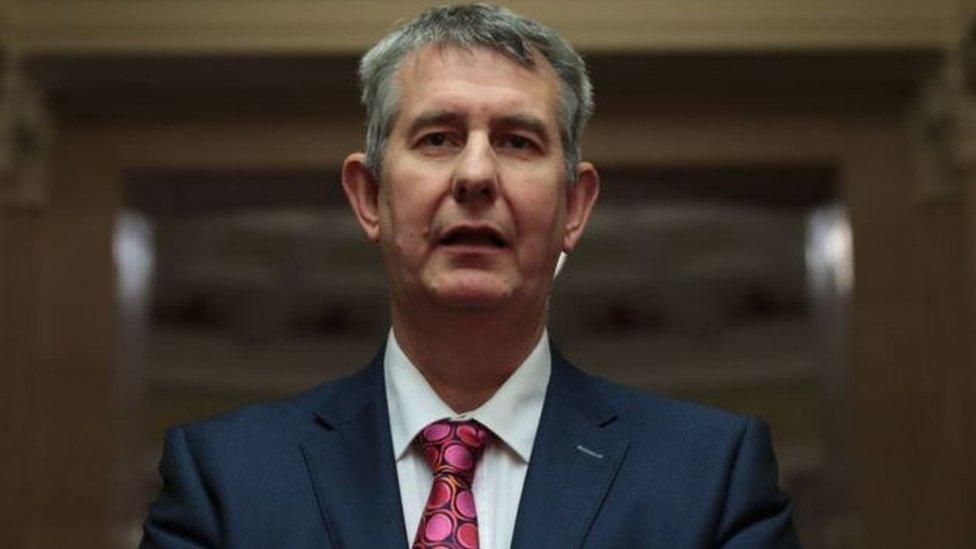
Edwin Poots says he does not want to create any barriers around Northern Ireland
Officials are concerned any ministerial order to pause work on the points of entry could be in breach of the Northern Ireland Act.
The act - which underpins the Stormont Executive - gives the secretary of state the power to order a minister or department to take an action if he believes it is required to fulfil the UK's international obligations.
Earlier on Tuesday, a senior DUP MP said there was "only one train of thought" in the party when it comes to opposing the NI Protocol in the Brexit deal.
Sir Jeffrey Donaldson made the comments after the government said it would bring new legislation on customs rules in NI this week.
DUP leader Arlene Foster previously told Sky News she had to recognise the protocol was "the reality now".
'Irish Sea border'
The party rejected the deal and the NI Protocol when it was agreed last year.
The Northern Ireland part of the Brexit deal, known as the protocol, was agreed in October last year and is due to come into effect at the end of this year.
It is designed to prevent a hard border in Ireland - or even any new checks at the Irish border.
It does this by effectively keeping Northern Ireland in the EU's single market for goods.
This will mean products entering Northern Ireland from the rest of the UK will be subject to new checks and control - the so-called Irish Sea border.
The latest round of talks between the UK and EU to reach a trade deal got under way in London on Tuesday, as NI Secretary Brandon Lewis conceded the new legislation to amend the NI Protocol would "break international law".
The NI secretary said it would go against the treaty in a "specific and limited way", but the legislation was designed to be a safety net, in case the trade negotiations fail.
Parliament should wait until the Internal Market Bill is published before delivering a verdict, he added.
News of the bill on Monday led to concerns from some of the Stormont parties and the EU that No 10 would not deliver on commitments about Northern Ireland in the withdrawal agreement.
Unionist parties in NI are strongly opposed to the plan for Northern Ireland in the Brexit deal, fearing it damages the UK union.
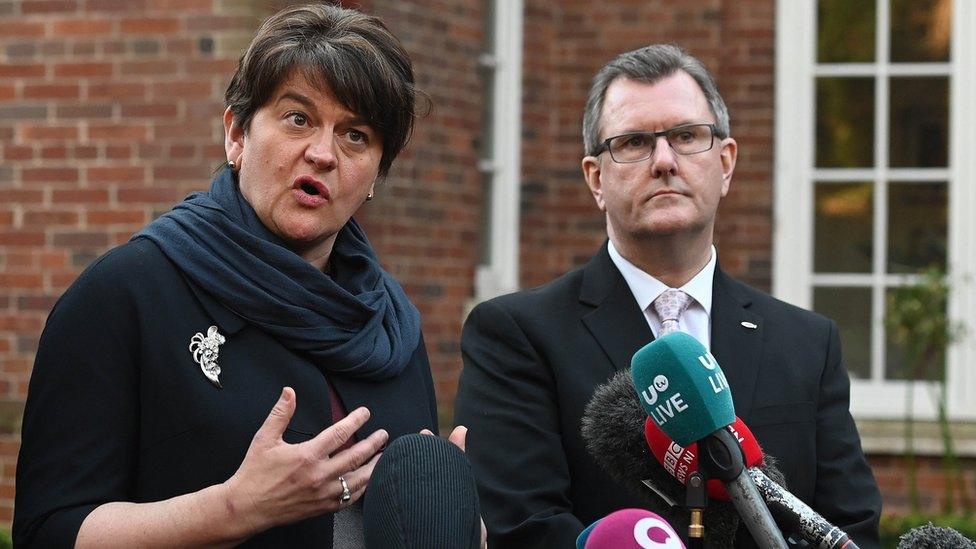
Sir Jeffrey said the party leadership was agreed that they should continue to oppose elements of the Protocol
During the debate in the Commons on Tuesday, Mr Lewis described the Internal Markets Bill as a "reasonable and sensible step".
However Labour's shadow NI secretary Louise Haigh argued it was "deeply concerning" the government had sought to make changes at such a late stage in the proceedings.
Mr Lewis said the UK and EU had been working in a "spirit of good faith" and would uphold "fundamental principles that lie behind the protocol".
"The withdrawal agreement was written on the assumption that subsequent agreements could be reached on the detail through the joint committee," he added.
"We hope we can do that, but as a responsible government we cannot allow businesses in NI to not have certainty for January, if it's not worked out."
The specialised UK-EU joint committee is made up of government officials, rather than politicians, to work out the practical detail of the withdrawal agreement and NI Protocol.
The DUP, SDLP and Alliance also put questions to the secretary of state about the legislation.
East Antrim MP Sammy Wilson insisted his party would "judge this bill on whether it lives up to what the government has promised... this union-splitting, economy-destroying and border-creating agreement has to be changed".
The SDLP's Claire Hanna accused the government of having little contact with the majority of political parties in NI about the proposed plans, while Alliance's Stephen Farry said any changes would "place NI businesses in a very uncertain position" and affect the UK's chances to secure a trade deal with the US in future.
- Published8 September 2020
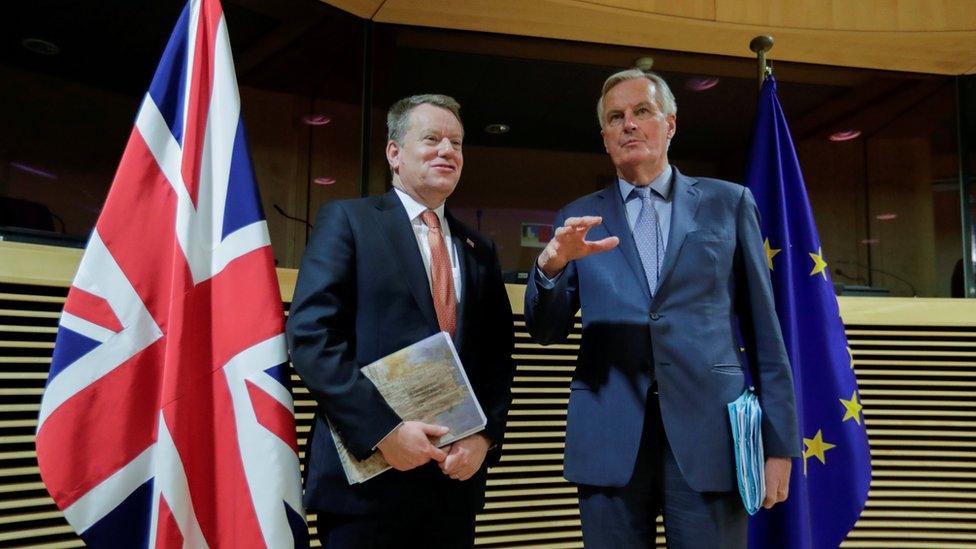
- Published7 September 2020
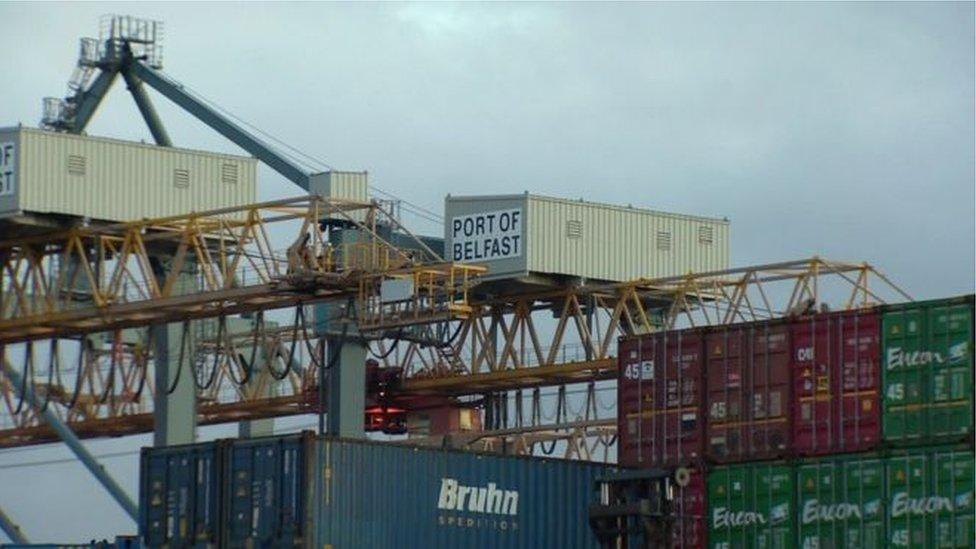
- Published7 September 2020
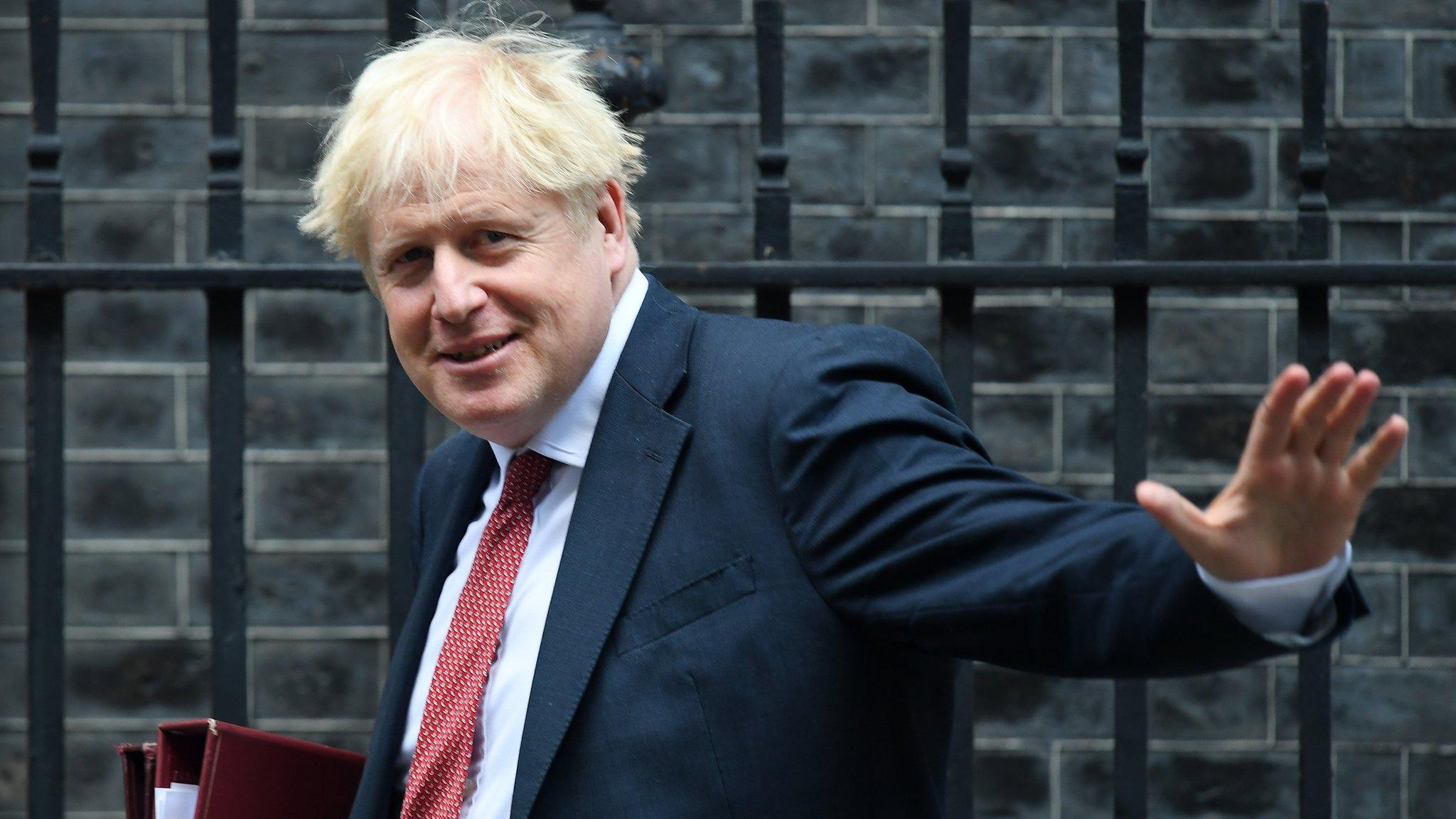
- Published6 September 2020
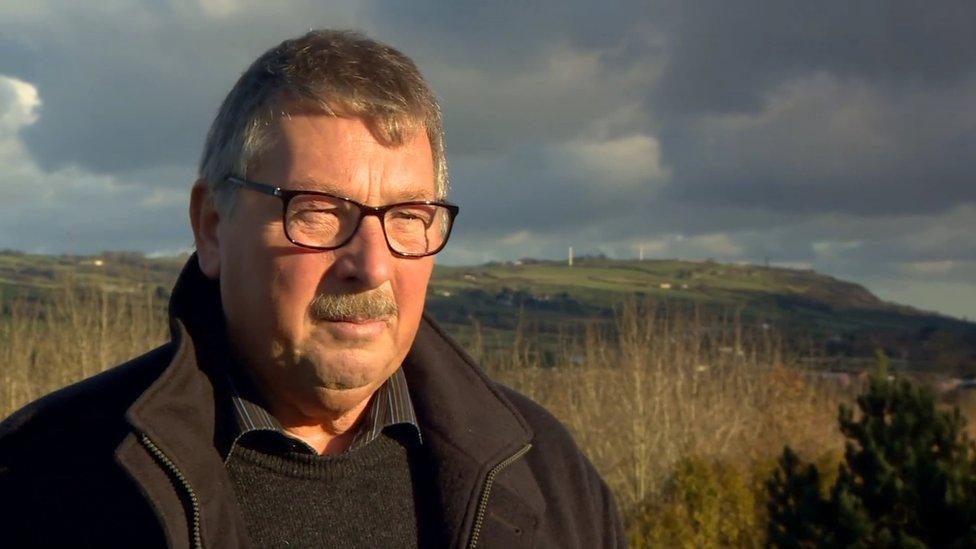
- Published1 July 2020
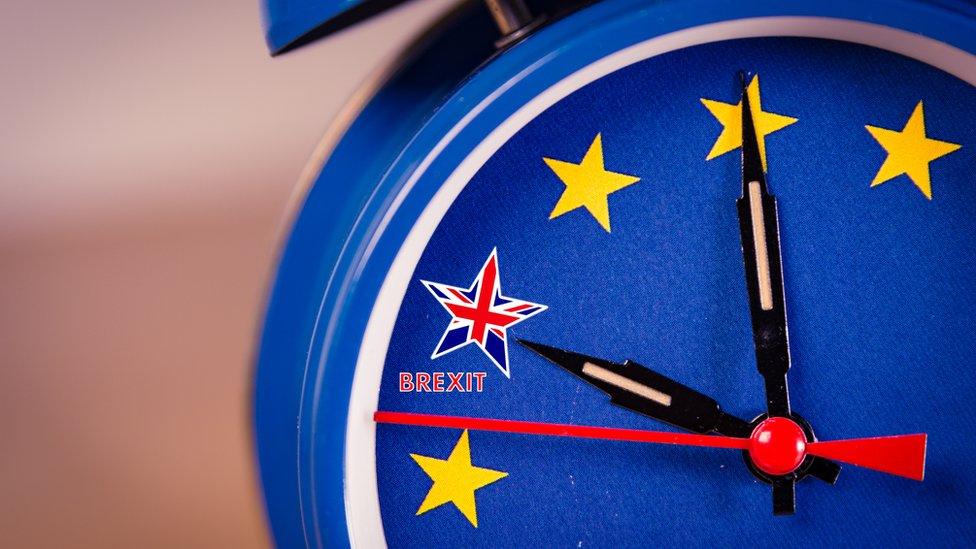
- Published20 May 2020
